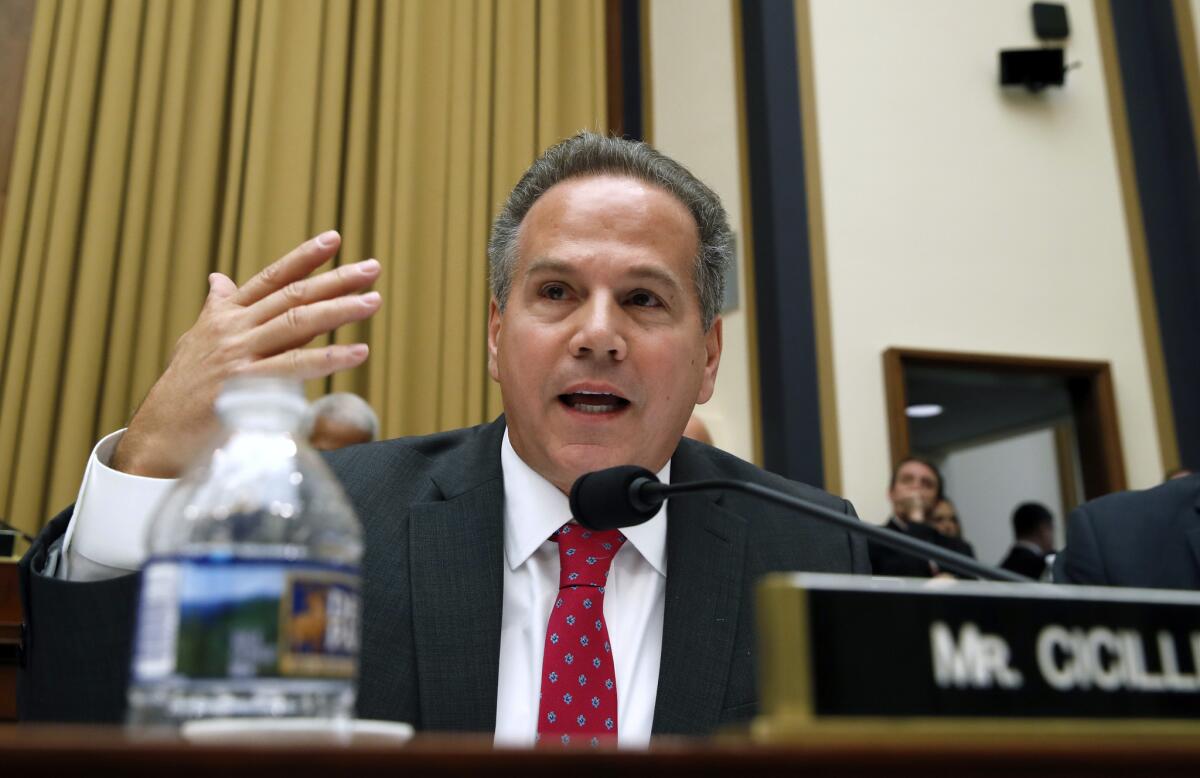Google abuses its power over start-ups, Sonos CEO tells Congress

Sonos Inc. Chief Executive Officer Patrick Spence accused Alphabet Inc.âs Google and Amazon.com Inc. of using their market power to thwart competition a week after filing a lawsuit against the worldâs largest search engine.
âTodayâs dominant companies have so much power across such a broad array of markets and continue to leverage that power to expand into new markets that we need to rethink existing laws and policies,â said Spence Friday at a congressional antitrust hearing in Boulder, Colo., led by Rep. David Cicilline, the Rhode Island Democrat who is investigating competition in the technology sector.
Sonos, a 1,500-person company, sued Google on Jan. 7 for allegedly infringing five patents covering multi-room audio technology. Spence said Googleâs dominance enabled it to violate the speaker companyâs intellectual property. He said that Google tries to prevent customers from using its voice assistants alongside another companyâs on Sonos speakers. While Amazon doesnât go that far, he said, it has used its power to âto subsidize the conquestâ of the booming smart-speaker market, particularly by under-pricing its offerings.
Sonos has worked with the committee since before it decided to file the lawsuit, according to a person familiar with the discussions. It has also responded to questions that the committee sent to customers of the large technology platforms.
Google has disputed Sonosâ claims and said it will defend itself. The search giant, which faces antitrust probes by 48 state attorneys general as well as the U.S. Justice Department, says it faces robust competition.
Cicilline is using the hearing to air grievances by smaller companies, following a series of Washington meetings that focused on the tech giants.
âIt is apparent that the dominant platforms are increasingly using their gatekeeper power in abusive and coercive ways,â Cicilline said in his opening statement.
The panel also heard from David Barnett, the founder of Boulder, Colo.-based PopSockets, which makes phone holders and stands. He alleged that Amazon frequently engaged in âbullying,â including deliberately selling counterfeits, threatening to go to unauthorized resellers and dropping prices without consulting.
âWe have $10 million less to innovate this yearâ because of PopSocketsâs decision to end its relationship with Amazon even though itâs more difficult to sell elsewhere, Barnett said.
âIt seems like Amazon is so dominant that there is no alternative,â said Rep. Ken Buck, a Colorado Republican on the committee.
Amazon said in a statement that PopSockets is a âvalued retail vendorâ and added: âWeâve continued to work with PopSockets to address our shared concerns about counterfeit, and continue to have a relationship with PopSockets through Merch by Amazon, which enables other sellers to create customized PopSockets for sale.â
The company said it refuses to work with some resellers to ensure low prices, and rejects the notion that itâs dominant, saying it represents just 4% of U.S. retail.
The panel also heard from Kirsten Daru, general counsel of Tile Inc., which makes devices that pair with phones to help people locate lost items such as keys or purses. Apple is reportedly preparing to unveil a competing service, and Daruâs 100-employee company alleges the phone maker has started putting up roadblocks to Tileâs business, such as burying permissions that allow the phone and Tile devices to communicate and prompting users to disable permissions that have been set.
âYouâre playing up against a team that owns the field, the ball, and can change the rules at any given time,â Daru said in an interview before the hearing, adding that a majority of the companyâs customers are on Appleâs operating system.
Daru said Apple also removed Tile devices from its retail stores and that it bid on search terms related to the would-be rival to drive up the cost of advertising 50% each week during the fall.
Cicilline has said his goal is to develop a final report with recommendations for Congress this year. He told reporters Tuesday that he wants to wrap up his probe by the end of March and said heâs hopeful the tech giants will cooperate with requests for chief executives to give information without subpoenas, preferably in public hearings.
âItâs hard to imagine that weâd conclude the investigation without hearing from some of the large technology CEOs, particularly in companies whether thereâs such really centralized decision making,â he said.






